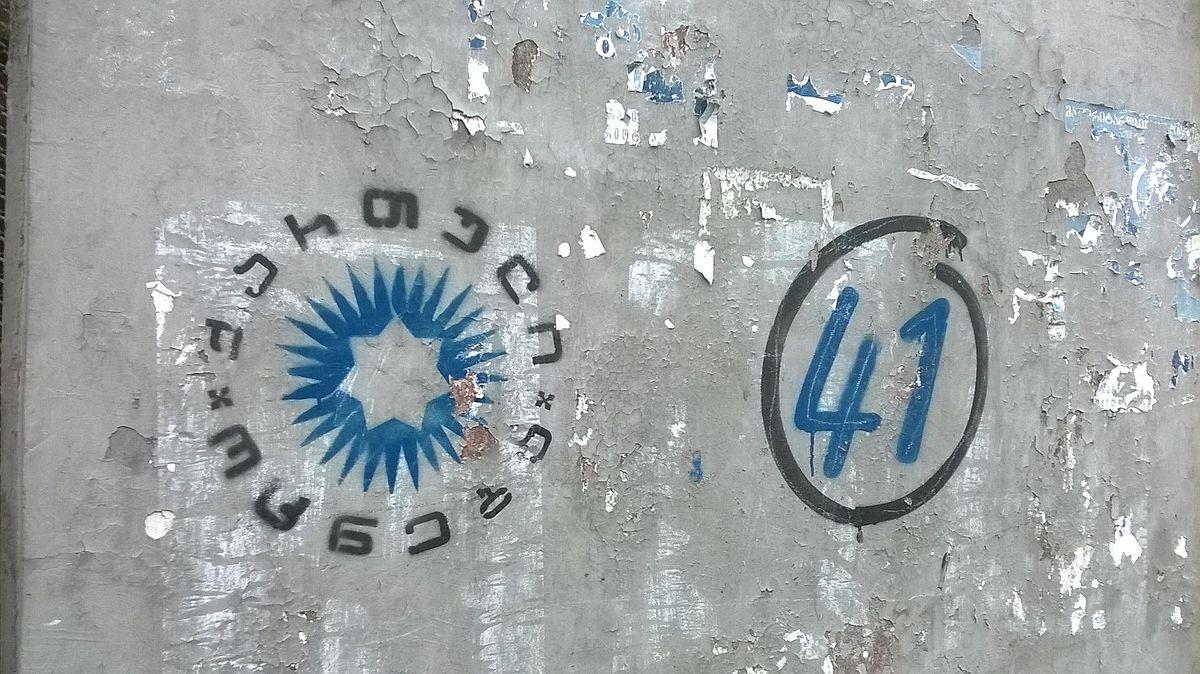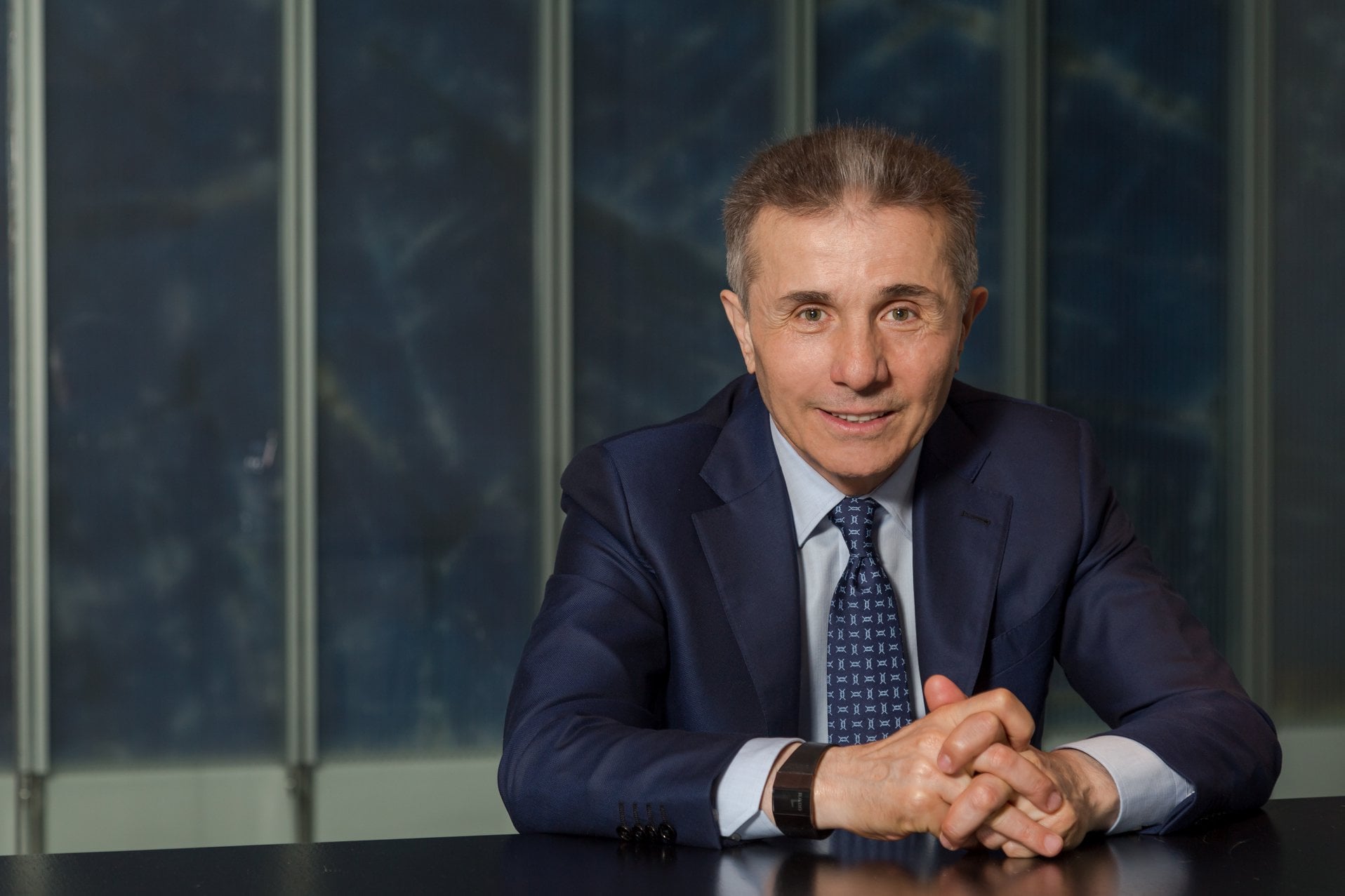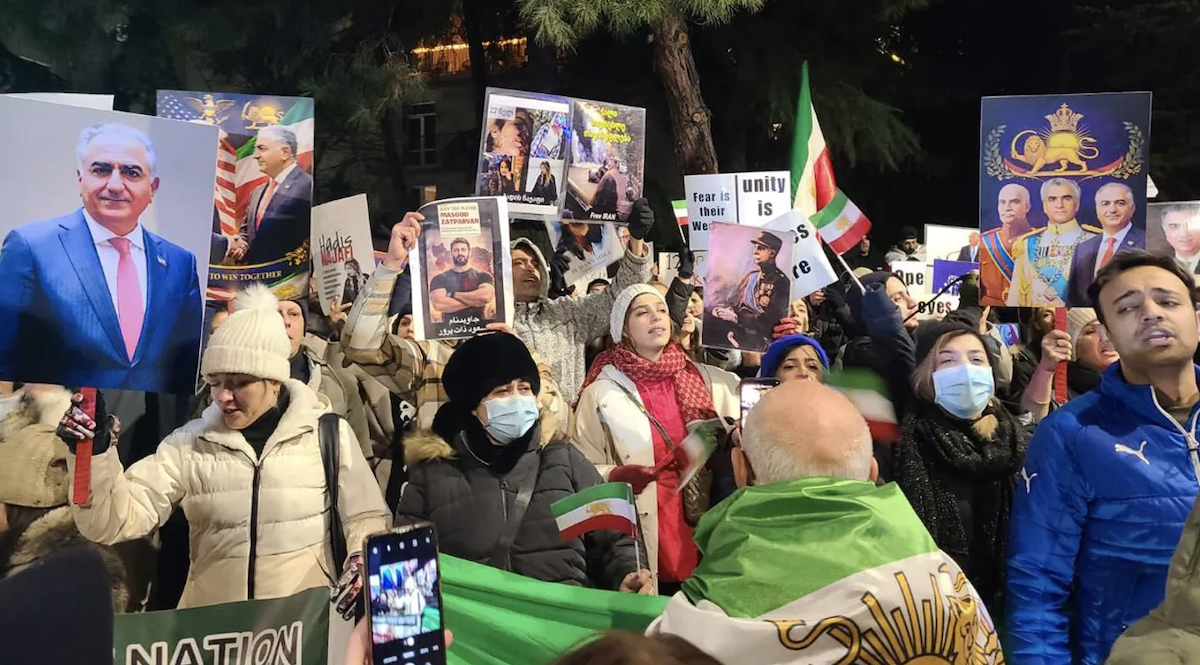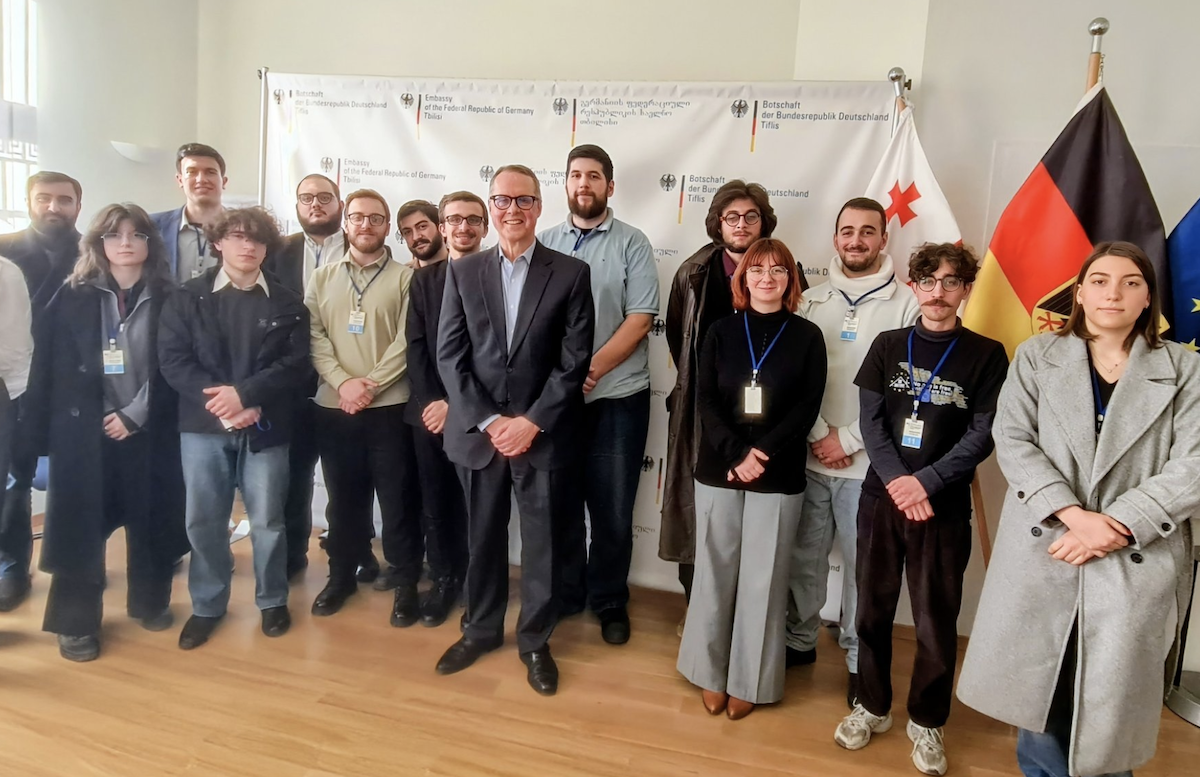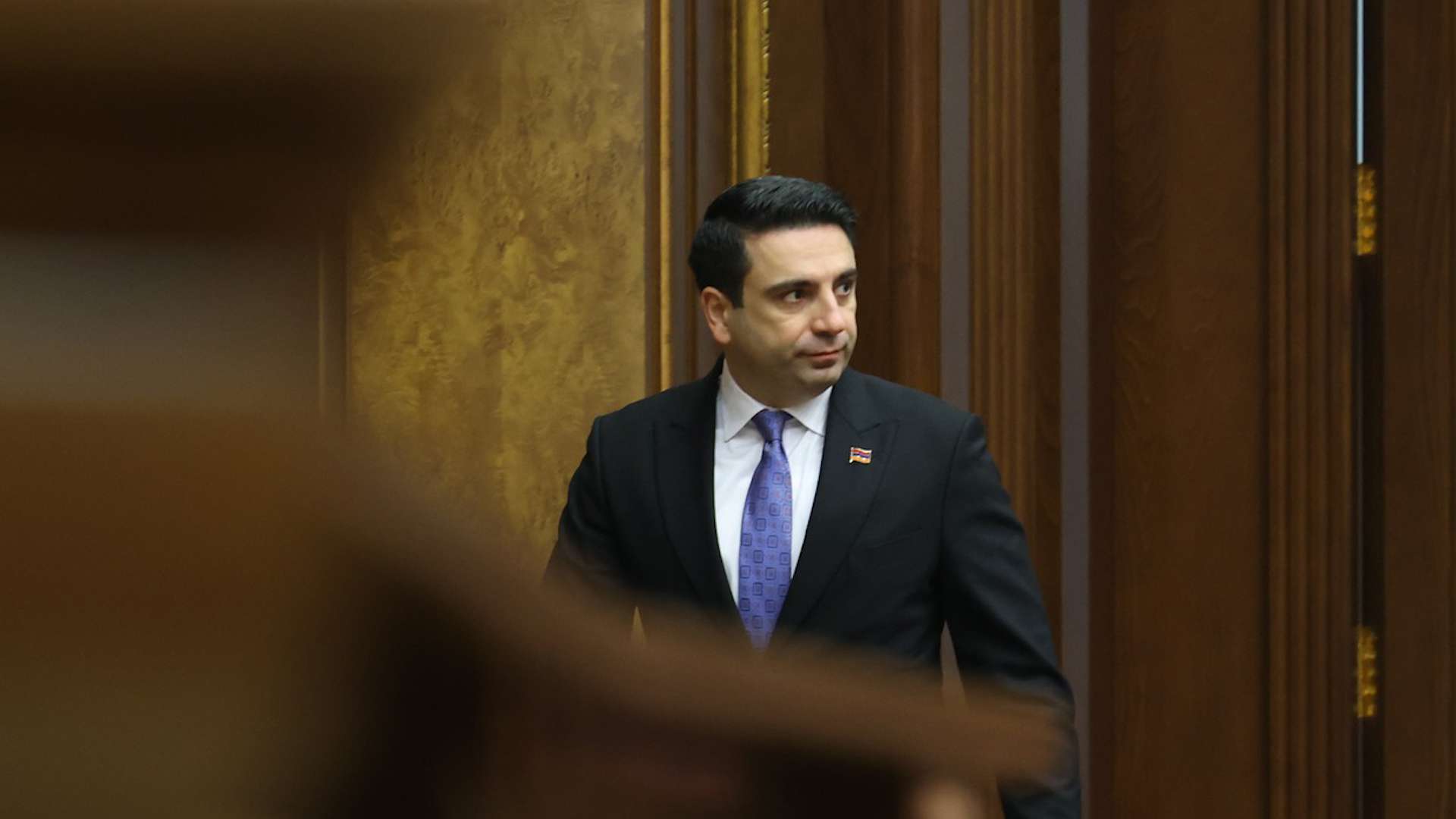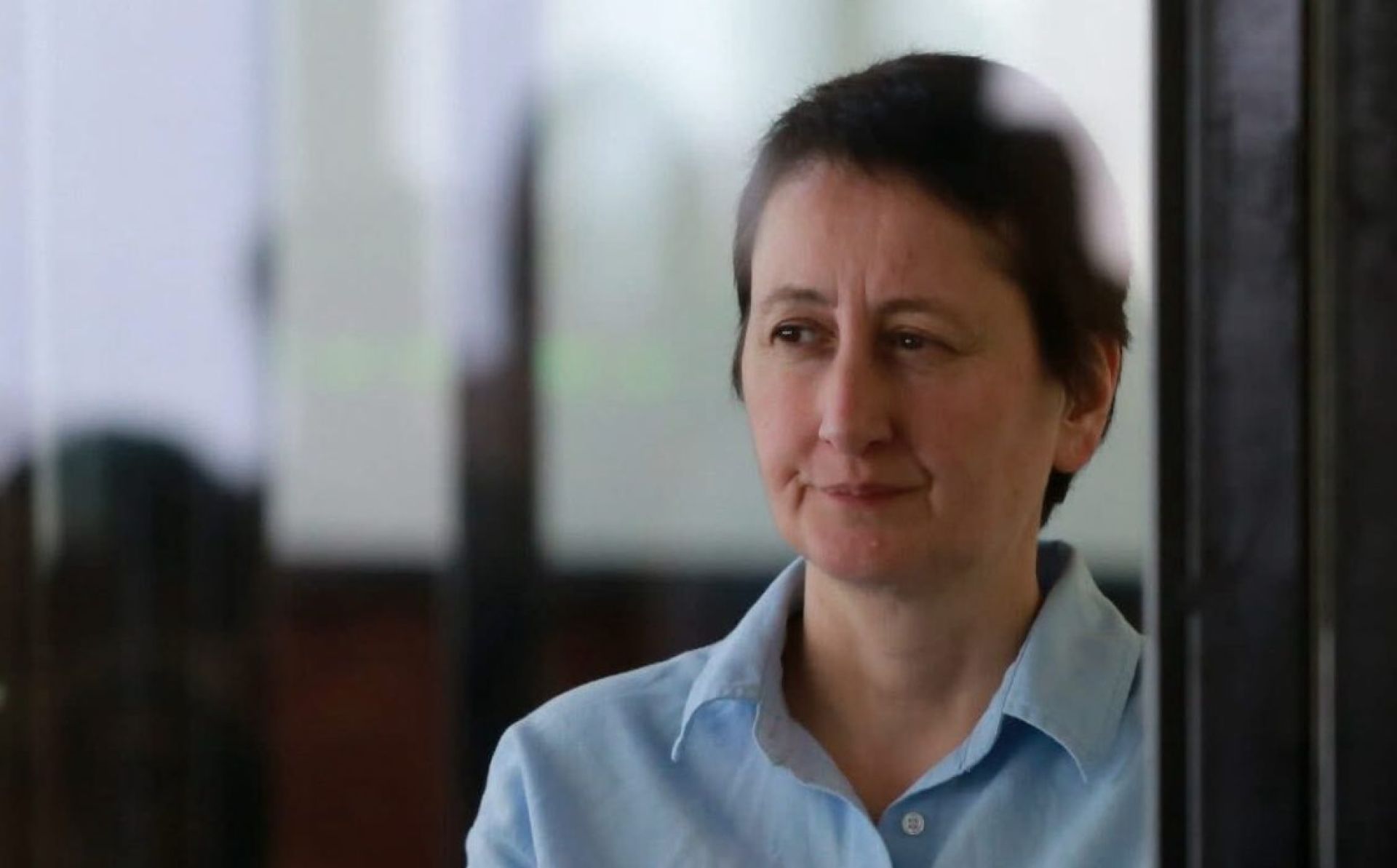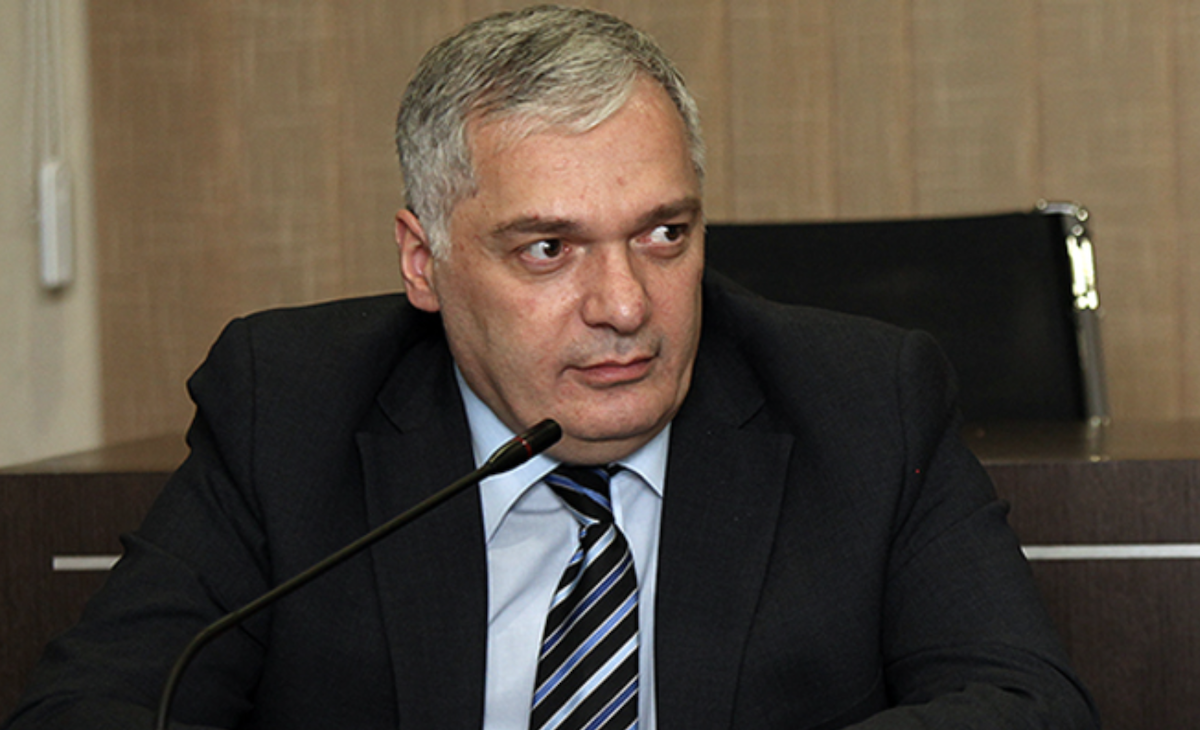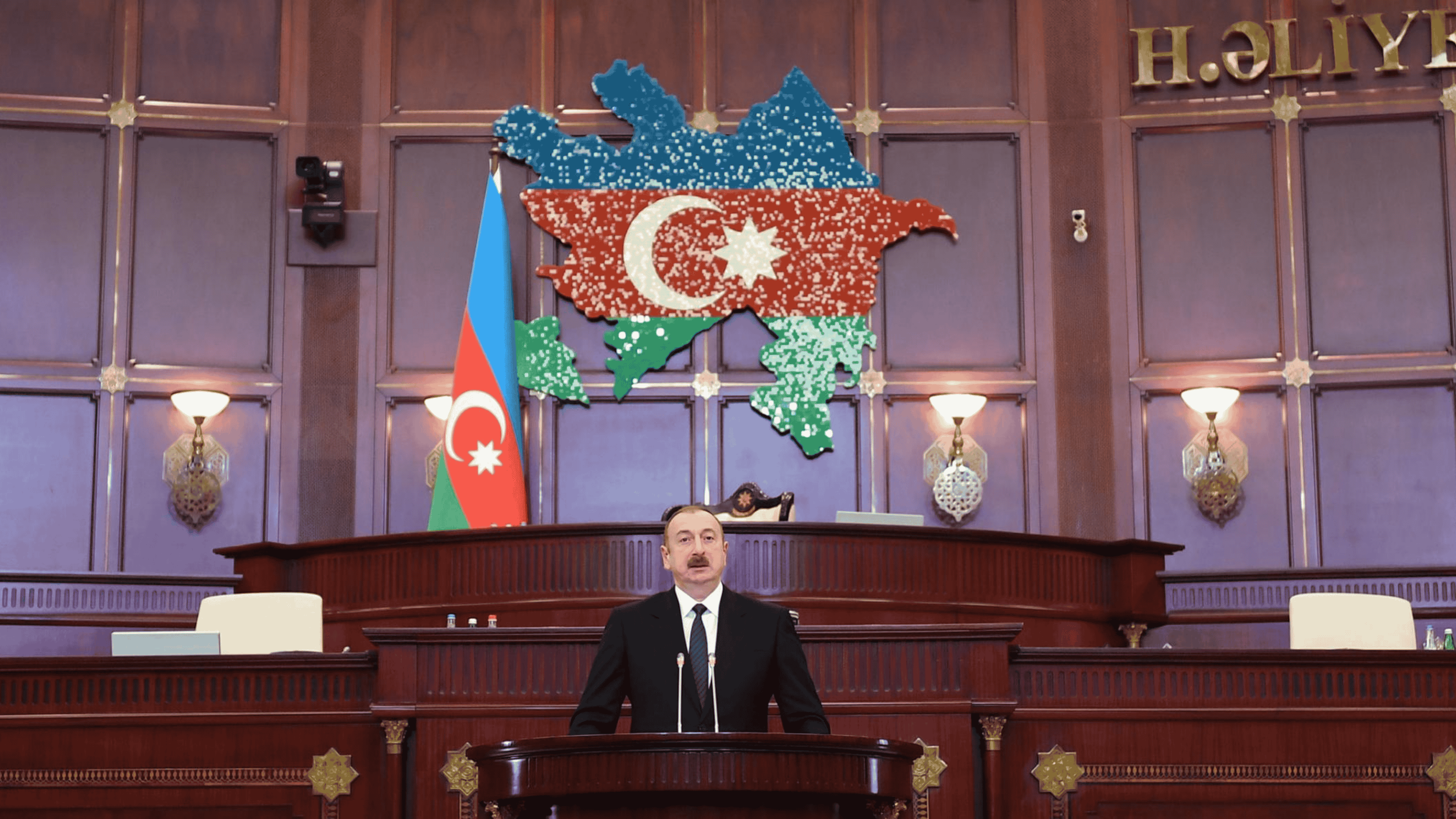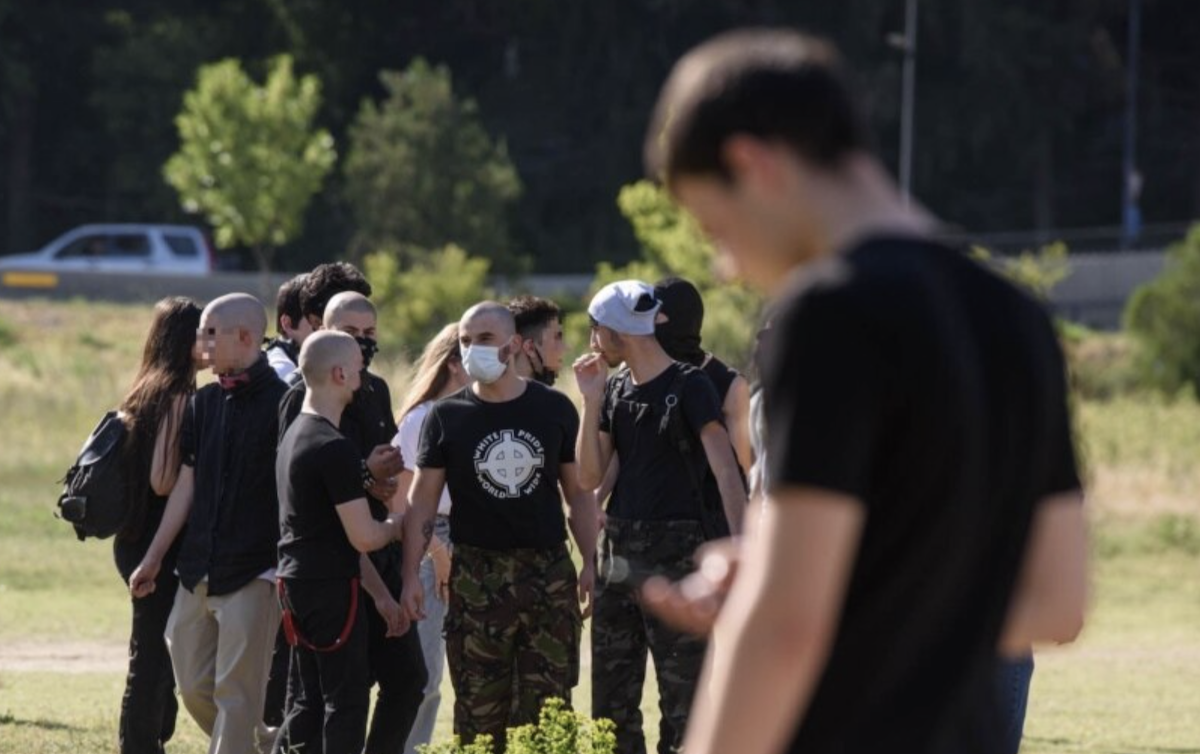What is wrong with the Georgian opposition?
What is the opposition going to do?
In two years Georgia will hold parliamentary elections. The opposition faces a difficult task — to remove Georgian Dream, the ruling party with ten years of experience, from power, and whose founder and informal head is the country’s wealthiest man, Bidzina Ivanishvili.
This is a time when an important geopolitical window has suddenly opened up for Georgia. The country has a chance, like Ukraine and Moldova, to gain the status EU candidate member, provided it fulfill the EU’s twelve recommendations.
But he opposition, which should be at the forefront of events, has recently been increasingly preoccupied with its own internal divisions.
The largest opposition party, the National Movement, is trying to re-legitimize its leaders through early intra-party elections, while other, smaller parties can neither act in concert nor independently form an agenda.
The agenda is set by the government, while opponents are still in “avoidance mode”.
The country’s third president, Mikheil Saakashvili, is still in prison, and no one can deny his deteriorating health. In addition, the stories of Saakashvili’s family members and his Facebook posts show that he does not intend to return to Georgian politics and has already completely distanced himself from it.
Opposition media are also under great pressure — the director of the opposition channel Mtavari Arkhi and the main critic of the government, Nika Gvaramia, remains in prison. The criminal prosecution of the founders of other opposition channels – “Formula” and “Pirveli” – or members of their families continues.
All this background creates a feeling of disappointment and hopelessness among opposition-minded voters. And if you rely on research, there are apparently much more such people in the country than those who support the government.
JAMnews tried to find out what is wrong with the Georgian opposition and its plans for the future.
Split in the main opposition party
What is the opposition going to do?
The office of the National Movement is a large building on the highway towards Tbilisi Airport. The UNM moved here when it was the ruling party.
From the empty parking lot it is clear that it will not be crowded inside.
A large banner with the inscription “Free Misha” is hung on the facade of the building, flags of Georgia, Ukraine and the European Union, spoiled by time and climatic conditions, flutter in the courtyard.
At the entrance to the building is a warning about the pandemic and the use of disinfectant solutions and masks.
It seems that time has stopped here.
Follow us – Twitter | Facebook | Instagram
“There have always been divisions in the National Movement, and such discussions occur in all modern European parties. There is no democratic process in Ivanishvili’s party, but there was and will be in Mikheil Saakashvili’s party,” Gia Baramidze, the only National Movement leader who agreed to be interviewed, states.
After the Georgian Dream came to power, one of the main promises of Bidzina Ivanishvili and his team was to make the former ruling party, Saakashvili’s National Movement, “disappear from the radar”.
Despite this, the party exists ten years after the arrival of Georgian Dream.
In a survey published by the International Republican Institute (IRI) in November, the party has 12% support. This is almost half that of the ruling party at 25% and the highest among all opposition parties.
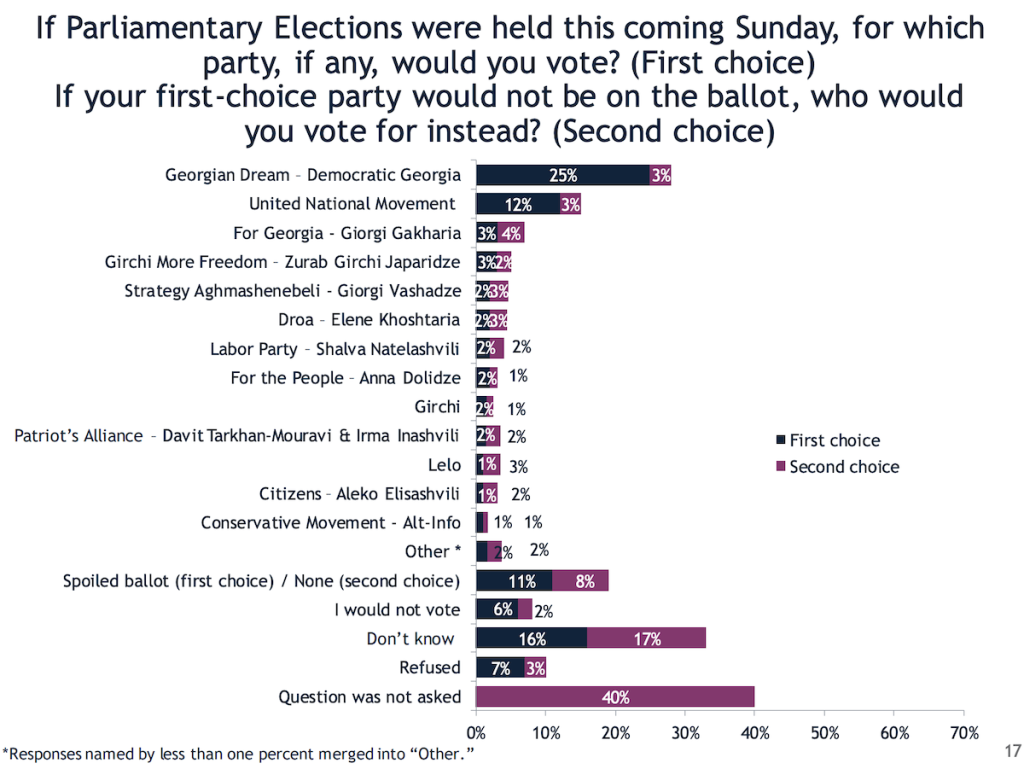
Today they are going through hard times. The party, which for years could not find a candidate for the post of chairman, is still looking for a new leader. There are two or more opposing sides, and now they are preparing for extraordinary intra-party elections.
The party is currently led by Nika Melia, who plans to run in the next elections. The main complaint of Saakashvili’s supporters against Melia is that he did not do enough to secure the release of Mikheil Saakashvili from prison. Melia’s main competitor will be Levan Khabeishvili. “The party must return to its voters,” in the latter’s words.
An important factor will be Mikhail Saakashvili’s position and which side he will take.
Saakashvili’s Facebook page is active even though he is in prison. It is led by a person whom Saakashvili trusts. The latest posts concern only Ukraine. Saakashvili’s friends and family say he has retired from Georgian politics and has no plans to return.
Despite this, his opinion is still decisive, experts say.
The main question is what the opposition’s strategy is
What is the opposition going to do?
Almost all parties believe that the number one task of the opposition is to remove the Georgian Dream from power.
Some parties believe it is necessary to unite, while others intend to go it alone.
For example, in the National Movement they believe that it is necessary to unite within the party itself, and not with others. Uniting different parties according to the proportional system and creating a single list is a formula for defeat, Gia Baramidze believes, and the opposition should fight for early elections.
“The country is ruled by a pro-Putin regime. Our strategy is to expose him, to explain to people that nothing is lost, that Bidzina is not invincible, to make it clear that the existence of this regime harms Georgia because it excludes integration into the European Union.”
According to Baramidze, the main task of the National Movement is also “the release of Mikheil Saakashvili and other political prisoners.”
Like the National Movement, the team of former Georgian Prime Minister Giorgi Gakharia excludes association with other parties.
This party has set as its electoral goal to double the result obtained in previous elections.
“Our strategic goal is not what others were striving for, to intensify political processes in September. We do not make false promises, we know how to evaluate our own resources. Our next challenge is to maximize the results of previous elections with the resources we have. Our party is strengthening its electoral base because it is consistent, honest and tells people the truth,” Kakha Kemoklidze, a member of the For Georgia party, stated.
The party For Georgia also recalls that its leader, Giorgi Gakharia, rarely appears in public as part of his strategy.
“European Georgia” talks about systematic overload with politics. The party believes that there is no need to convince people that Bidzina Ivanishvili is bad because everyone already understands this, and the main problem is the lack of a better alternative.
“Our strategy is to consolidate people around content. To inspire people that they can be better, that they are not backward, as Bidzina and some of the opposition call them. For some reason it is believed that Georgians should be spoken to in this way, in a populist way,” Tamar Chergoleishvili, the party’s campaign manager, says.
According to her, European Georgia is going to turn to the European past of the country and form a new team:
“We want to pave the way for new people into politics, to make this process interesting for them. Self-respecting, intelligent people are not interested in what is shown on TV. So we will create parallel options. This is how we’re going to form a team. We will bring into politics not new faces, but new content,” Chergoleishvili says.
In another party, Lelo, routine party work is planned to attract voters.
One of its leaders, Salome Samadashvili, says that what took place in the opposition after the last parliamentary elections led the public to lose confidence in politicians.
According to Samadashvili, the opposition spends a lot of time on internal disputes and this causes voter indifference to the political process.
“We have to give politics back to the people. Our efforts will be directed there. We will try to form a proposal that will be of interest to Georgians. Polls show that the main topic for people is the European future, that Georgia should remain in the European orbit and get candidate status. In addition, a large part of society is worried about the lack of prospects and insufficient rates of economic growth,” she says.
According to her, Lelo has a plan to bring the country out of the economic swamp.
“Lelo is going to spend as many resources as possible on getting voters; that’s the main challenge and problem.”
As for uniting with other opposition parties, Samadashvili says that this is not part of Lelo’s plans.
“When necessary, Lelo, along with others, participates in protests. As for cooperation, we have a common coordination with pro-Western parties.”
Some of the pro-Western parties believe that their activities will be more effective if they unite.
Samadashvili says the main challenge for political parties today is to give voters hope for change:
“The situation is so complicated that a special strategy is needed. The voter feels hopeless because he does not see the strength in the opposition.”
The political movement “Droa”, “Strategy Agmashenebeli” and “Girchi – more freedom” have united.
Elene Khoshtaria, leader of the Droa party, spoke of their joint strategy.
She says that the main task of political parties today is to give voters hope for change:
“We are in reaction mode because we do not have a well-thought-out line against propaganda. Individual parties cannot do this, so there is a need for unification. Propaganda drains public opinion. All political energy goes into this. Creating your own agenda and resisting propaganda is also very important for communicating with other opposition parties.”
Khoshtaria says the voter passivity many point to will end if voters see there is hope for change.
“As soon as we restore faith in the effectiveness of actions and give the realization that we cannot follow the road to Europe in this way, then it will be possible to move on to protest. The opposition spectrum should be ready for this.”
“We are open, we hold discussions, we continue meetings. Together with experts, we will talk about 12 points that need to be fulfilled. People should understand that nothing is actually being done, it is just a matter of political will,” Elene Khoshtaria believes.
What is the opposition going to do?
What is the opposition’s problem, according to the opposition itself?
Politicians usually avoid talking about their own mistakes. It is much easier to discuss the mistakes of others.
We asked representatives of the opposition what mistakes it is making today.
“There is a missing link between the opposition and the voters. When most voters say they would like a new political proposal, it means that they do not see anything interesting in the current political field. The opposition devotes a lot of time to internal discussions or discussions of the strategy, and at this time people have problems that no one from the opposition talks about,” Salome Samadashvili from Lelo says.
“The problem is that they say one thing and do another, they say a third and they do a fourth. Nothing breeds nihilism in society like inconsistency. Because of its inconsistency the opposition is unable to consolidate its electorate and to replace nihilism with optimism,” Kakha Kemoklidze, a member of the For Georgia party, stated.
“This country is ruled from the shadows, Ivanishvili’s regime is a shadow regime. The government, of course, speaks, but we know that it does not express its own opinion. And the people we see in positions have nothing to do with them. Lack of accountability is the main problem in this country. Unfortunately, the same thing happened to the opposition,” Tamar Chergoleishvili, European Georgia, said.
“At this point, we have two tasks: to restore faith in action and to explain to people that we do not have a European perspective under the rule of the Georgian Dream,” Elene Khoshtaria, of the Droa party, said.
Money and elections
Since Georgian Dream has successfully mastered the strategy of creating problems for businessmen with different political views, the question arises how the opposition will receive funding for the functioning of the parties and preparation for elections.
In personal conversations they say that among the opposition there are big disagreements about the sources of funding.
People close to the National Movement note that the reason for the intra-party conflict and the appointment of the election of the chairman was a confrontation between one of the main financiers of the party, David Kezerashvili, and the current head of the party, Nika Melia.
Kezerashvili served as Minister of Defense and other high positions in the previous government. And after Ivanishvili came to power, Kezerashvili left Georgia. Several criminal cases were initiated against him. And according to one of the episodes, he was sentenced in absentia to imprisonment. This means that if he returns to the country, he will be arrested.
Millionaire Kezerashvili has been the main donor to individual opposition parties for many years. He also owns one of the most important TV channels, “Formula”. Now the government is trying to create problems for him and his channel. If the second court upholds the decision of the first and awards Kezerashvili five million euros in damages in favor of the Ministry of Defense, which is expected, this may mean financial problems and the arrest of Formula.
Also, the founder of “Formula” is a target not only of the court, but also of the legislature. The parliament adopted in the second reading the law on deoligarchization. By accepting it, the government is trying to extend “deoligarchization” to Kezerashvili, the opposition’s chief financier, and thereby deflect attacks from Bidzina Ivanishvili, widely believed to be the country’s informal ruler. If Kezerashvili ends up on the list of oligarchs, he will likely be banned from owning a TV company.
The current chairman of the National Movement, Nika Melia, recently said that he considers David Kezerashvili “a type of oligarch.”
Kezerashvili responded to these accusations with a letter, wherein he said that he never interferes in the formation of the agenda of opposition parties and in their internal activities:
“I am not interested in party politics. At the same time, this does not mean that I will give up the fight against the Ivanishvili regime … I considered and still consider it my duty to stand on the side of everyone who is ready to fight against the harmful pro-Russian regime of Georgia,” the letter reads.
The figure of Kezerashvili is perceived differently by the Georgian opposition, which has even recently been talking more about Kezerashvili than Bidzina Ivanishvili.
Tamar Chergoleishvili says that Kezerashvili spends money to increase his own influence:
“The opposition had a lot of money from Kezerashvili in the 2020 elections, he gave money to the Nazis and Vashadze and poisoned everyone with this money. Elections do not need so much money in a small country. And Bidzina Ivanishvili will always have more money. The main thing is the content. You can’t compete with Ivanishvili in buying votes, he always wins,” Chergoleishvili says.
Part of the opposition believes that it is wrong to go against Kezerashvili today, because in the end it is in the interests of the Georgian Dream.
Neither Kezerashvili nor the opposition want to be the main financiers in order not to be hung out to dry alone, Elene Khoshtaria says:
“It should be a mobilization of common resources. We have to get people who have money interested so that they want to invest it.”
Elene Khoshtaria confirms that Third Force has a financial relationship with Kezerashvili:
“We have contacts with Kezerashvili not for the first time, European Georgia had such relations many times, even when I was still there. I never had problems with someone dictating to me, nor will this happen in the future,” Khoshtaria declared.
Part of the political elite of the National Movement is wary of Kezerashvili.
However, Gia Baramidze says he cannot look down on a businessman who expresses a desire to help the opposition.
“I welcome all the people who oppose Ivanishvili, have some resources and help the party.”
The For Georgia party says that the opposition lacks not only money, but ideas. When there is an idea, there is another way to get financial resources, and not just clinging to one particular businessman, Kakha Kemoklidze says:
“I hope that a certain part of the Georgian business will think that if it does not make certain donations to political parties, then it will also be responsible for the country’s slide into the abyss.”
Lelo believes that the opposition should not earn big money in elections.
“Those who think they can defeat Ivanishvili with money should stop their political activities now. Ivanishvili must face a great political idea that will attract the Georgian people. Funding is needed, of course. But the formula for defeating Ivanishvili is not to spend more money on politics than Ivanishvili,” Samadashvili believes.
What will happen next? Expert assessments
What is the opposition going to do?
Without a strong and active opposition, the chances of achieving change and developing democracy in the country are minimal.
What chance does the opposition have in this situation?
Until now the most effective method of the Georgian opposition have been street actions, but according to some experts this was not enough, and even created new challenges.
The myth that street protests are enough to change the political situation in Georgia has been dispelled, political scientist Gia Nodia says:
“Elections are ahead, it is difficult for the opposition to psychologically adjust to the recognition of this reality.”
According to Nodia, opposition leaders have directed their supporters exclusively to radical actions, and now it is difficult to formulate new messages that will be convincing to the people.
Nodia believes the call for early elections to be misguided:
“We should not focus on early elections, but on the 2024 elections.”
Since this is still relatively far away, parties traditionally organize themselves first and try to strengthen individually.
According to Nodia, problems within the National Movement cause a feeling of confusion among opposition-minded voters.
“There is a leadership crisis. The fact that Mikheil Saakashvili’s status in the party has become unclear complicates matters. He says he has retired from Georgian politics, but in reality it is still Saakashvili’s party. Therefore the vagueness of his position there is confusing. Most active supporters find it difficult to accept any leader other than Saakashvili.”
Despite Saakashvili’s distancing from the party, the National Movement will try to maintain contact with him until the end, sociologist Iago Kachkachishvili believes. In his opinion, Saakashvili is the main factor that for the party to maintain votes.
“Despite his imprisonment Saakashvili remains an ideological leader, and the demand for his release is ever-present. It should be taken into account that the Misha factor is very important for the voters of the National Movement and these opposition groups do not touch Misha, but rather hide behind his reputation as a shield,” Kachkachishvili says.
The outcome of the internal elections in the main opposition party of the country is very important for the political process as a whole.
Both experts agree that a merger is the most pragmatic and correct solution for small parties.
“Calling for unity is a very correct strategy, this is the desire of the people. People are confused because of a lack of understanding of what is happening in the National Movement, and because of the sheer number of parties. It is difficult to understand how they differ and why people should vote for one party and not for another. The parties themselves can think as much as they like that they are different, but if people don’t notice it, then it doesn’t matter what you think about yourself,” Nodia says.
“Unification will be the key to the success of the opposition in these circumstances. However, this should be a natural, ideological, value-based, electoral union. Research dictates to political parties who takes votes from whom. If they realize this and see that the parties can unite and thus gain momentum, this would be the right step. This in no way means absolute unification, bringing everyone under the same banner. It would be absolutely unprofitable. Parties that are compatible with each other should unite and strengthen their weight,” Kachkachishvili believes.
What is the opposition going to do?










